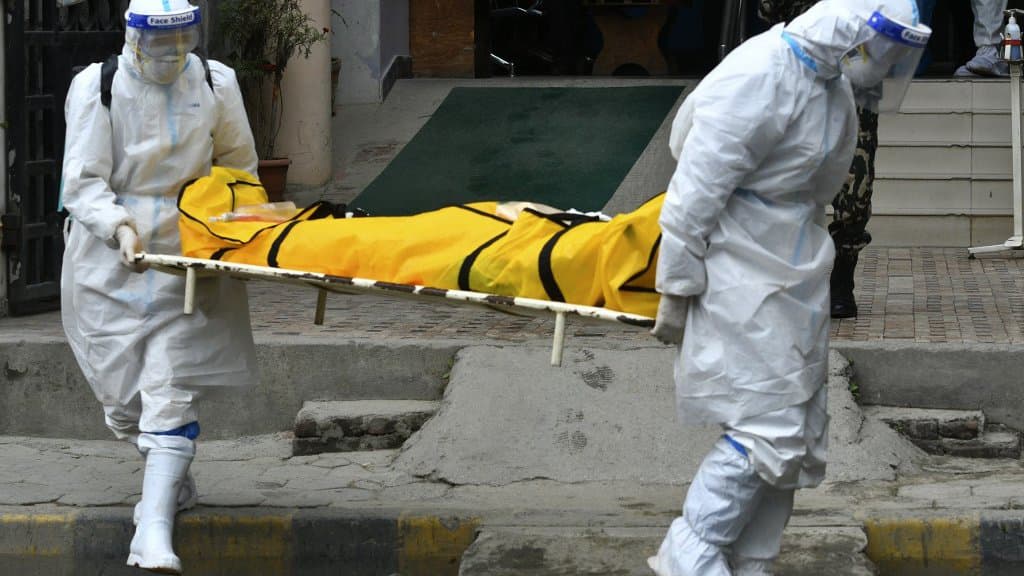
Nepal, a neighboring country of India, is also experiencing an epidemic
44% test positive rate, 20 cases per day per 100,000 residents … The Nepalese authorities are facing a strong second wave of the epidemic, which can be explained by their proximity to India and the declining population.
Lack of oxygen, hospital beds, and caregivers. Reality in India, but also in Nepal. The Asian country, which had a population of 26.8 million in 2019, is in the grip of a much stronger second wave than the first and now has 20 cases of pollution per day per 100,000 people. Most hospitals in Nepal are overwhelmed with COVID-19 patients, according to the International Federation of Red Cross and Red Crescent Societies.
“The southern towns near the Indian border cannot cope with the increasing number of people who need medical treatment,” the federation said. “Nepal has 57 more cases than at the same time last month,” she added, adding that the test-positive rate reached 44% at the end of last week.
“The situation is getting worse every day.”
For the president of the federation, Dr. Nitra Prasad Temsina, “What is happening in India now is a terrifying glimpse of what will happen in Nepal if we fail to contain this new wave that kills lives every minute.”
Public health infrastructure just can’t keep up: The country has fewer doctors per population than India, which also has a higher vaccination rate, according to reports. CNN. Additionally, the high rate of test positivity also indicates that many cases remain undetected.
Holding public events, festivals, political gatherings and important weddings contributed to this strong spread of the virus, especially since the authorities are being criticized for their slow response.
“The situation is getting worse day by day and it may get out of control soon,” Nepali Health Ministry spokesman Dr. Samir Ashikari said on Monday.
The weak authorities in the country
Strict containment measures have been imposed in the areas most affected by the epidemic. The country has also suspended international flights until at least May 14 and closed its borders with India, the country where many Nepalis cross. A procedure that came too late for Dr Samir Mani Dixit, a public health researcher.
Many Nepalese traveled to India in April to join the Hindus to bathe in the Ganges River for the great religious ceremony. Large mix of population the Nepalese government allowed it to happen.
“There will be other festivals, but the government is not in a position to say anything. We are tired of telling people to respect sanitary rules,” Dr Jagshor Gautam, a spokesperson for the Nepalese Ministry of Health, told CNN. .

“Unapologetic pop culture trailblazer. Freelance troublemaker. Food guru. Alcohol fanatic. Gamer. Explorer. Thinker.”
